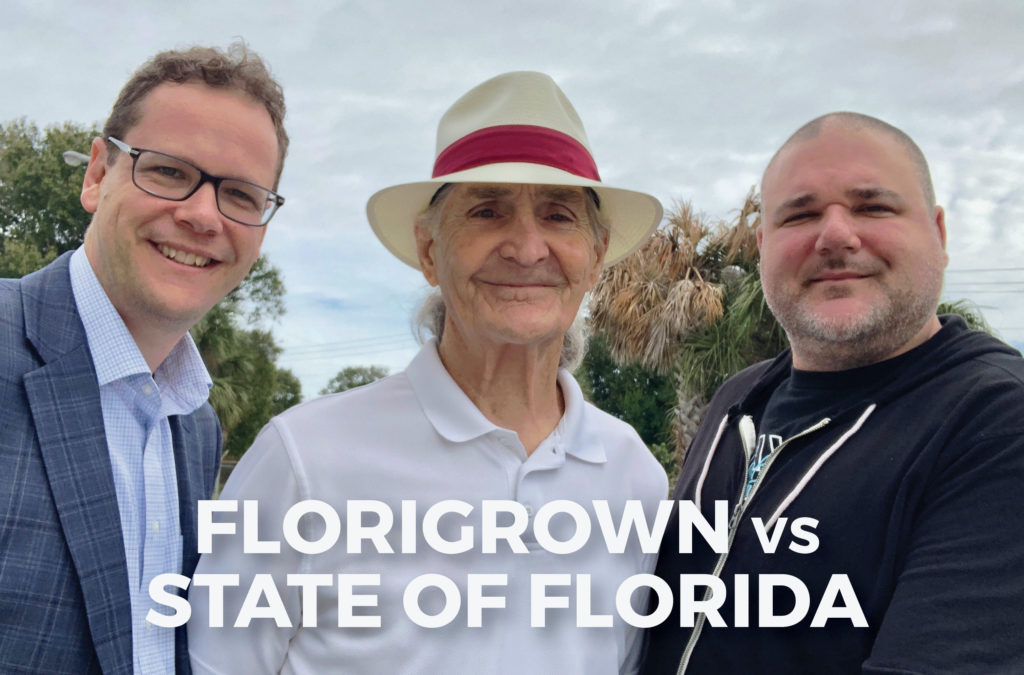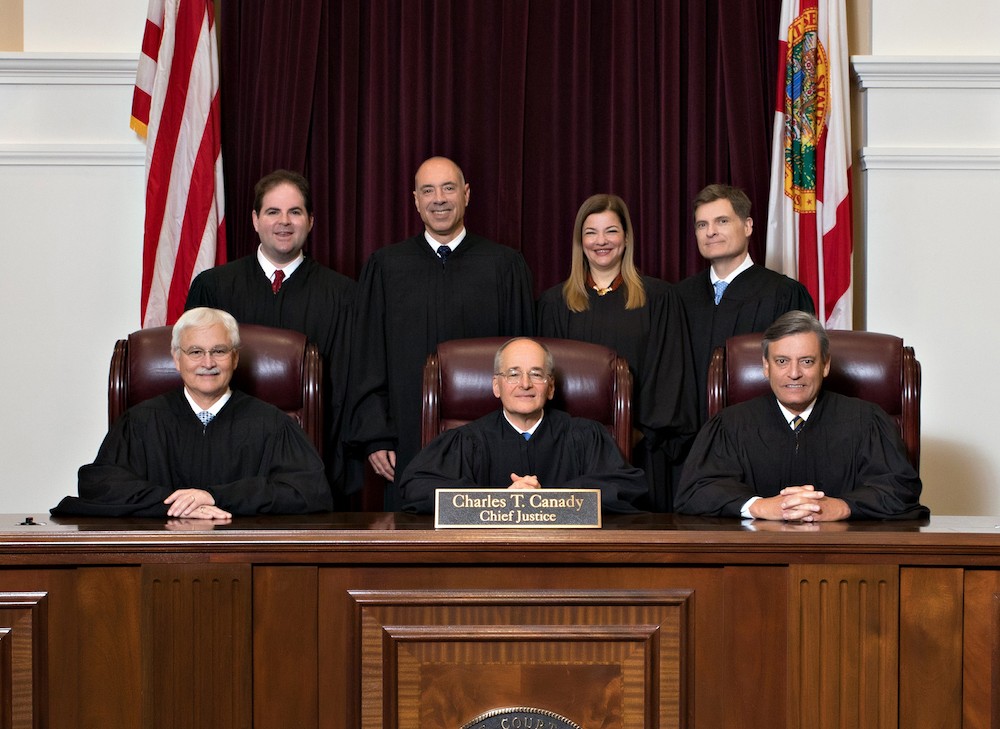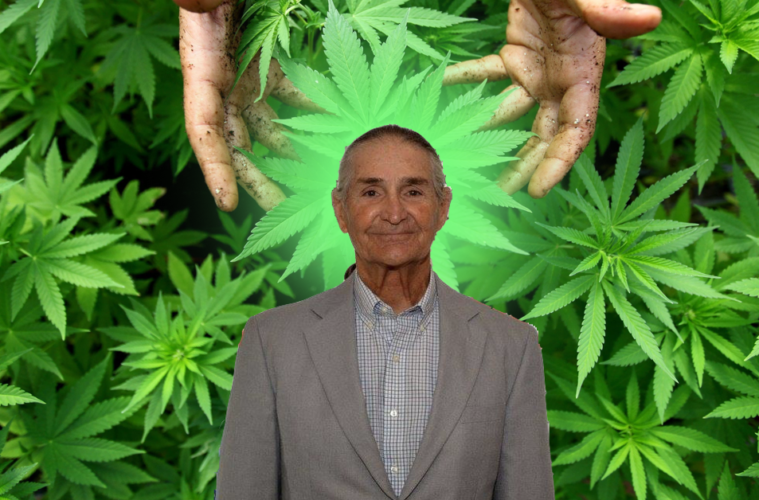Imagine if Nabisco had to grow and process all their own ingredients, make, and package their cookies and sell them in a Nabisco-only store, which is only in the state where the wheat was grown for the flour. That is what a vertically integrated MMTC does for medical cannabis. It is a hard path to take, and very expensive to build-out and operate.
In Florida’s closed cannabis market, which still only has 22 valid licenses since it began in 2015, each vertically integrated business requires a $5M performance bond, tens of millions to build-out, and licenses have been selling for up to $213M.
Small business left out of Florida’s medical cannabis program
Its no surprise that there is no such thing as a small cannabis business that touches the plant in Florida. Thanks to the current regulatory structure, it is by design.
The case known as Florida Department of Health v Florigrown, LLC was supposed to change all that.

The Florigrown case, filed by Adult Entertainment, Brewery and cannabis entrepreneur Joe Redner and partners Adam Elend and Jeff Marks, won in the lower courts. But it was just killed on Thursday by the Florida Supreme Court by overturning the decision and order of temporary injunction from the 2nd District Trial Court and First District Court of appeals(1st DCA).
Florigrown files a lawsuit to correct the system.
Originally filed in 2017, after trying to register as an MMTC after Amendment 2 passed and getting the runaround from the DOH, Florigrown had set out to prove several things:
1)anyone who can do all the things noted in the definition of an MMTC should be able to register with the state for approval to be licensed an MMTC.
2)the vertical mandate of the implementation law, put into statute, by being restrictive, did not comply with the constitutional amendment and
3)neither did the cap on MMTC licenses or dispensary locations for the same reason.
Despite Florigrown’s win in court, the state appealed and blocked the decision.
When it went before the 2nd District Court, the judge concurred with Florigrown and a injunction was filed so that DOH could change over their licensing process to include horizontals and register Florigrown as a potential MMTC, throwing the current MMTC’s into a panic.
But the state appealed, and the judge’s order was stayed, and it waited to go before the 1st district court of appeals. After they won a partial victory in the 1st DCA, that state appealed again, and the case went to the Supreme court in August of 2019. The timing couldn’t have been worse the the current State Supreme Court had been filled with some of the most conservative justices, appointed mostly by current governor Ron deSantis and former governor Rick Scott.
The case gets held up in the Supreme court for almost 2 years
Several MMTC’s filed amicus briefs siding with the state, fearful that allowing horizontal integration would create greater competition and lower their license valuation.

After a rare two sets of Oral Arguments and an additional wait of 7 more month, the Supreme Court finally rules, and the 6-1 opinion sided with the State of Florida.
Here’s the SC reasoning – for what it is worth.
Explaining their reasoning is difficult. They saw the issues at and in a totally different context than the trial court or the court of appeals. Whereas the lower courts ruled that the legislature created statutes that were more restrictive than the constitutional amendment and therefore unconstitutional, the supreme court noted that the amendment was mearing giving a list of what MMTC could be doing, and the stature was giving the requirements for licensure, so the lower courts were comparing apples to a recipe for applesauce.
The Supreme court also ruled that the cap on MMTC’s and dispensaries had no real deleterious effect on the patients of Florida. Even though Florigrown had included 16 affidavits from patients claiming trips of hundreds of miles to get their medicine and constant battles with lack of supply, poor product and problems with delivery that diminished access to their medicine. The court disagree their too, noting that the law allows for more MMTC’s (even though they haven’t given out any new licenses, the folks in the affidavits still managed to get medicine and the cap on dispensaries ended in 2020.
Florigrown speaks out.
Adam Eland, co-author of the case said this about the Supreme Court’s opinion –
We’re incredibly disappointed. This is a sad day for those of us that think the free market is what works best, and an even worse day for Florida patients who will continue to struggle with high prices and low supply. The people of Florida didn’t vote for this system created by the legislature where 22 mega businesses completely control every aspect of medical cannabis. Floridians needed the Supreme Court to stand up for them, and today they declined to do that.
The path forward
Meanwhile, it has been 5 years since the last time that the DOH has allowed applications for licenses in Florida. How will this ruling change the face of the cannabis industry in Florida?
First and foremost, the vertical mandate stands. Anyone seeking to enter the medical cannabis industry in Florida as an MMTC will need possible hundreds of millions of dollars to buy a license, if one is even available, build it out and implement it. That knocks out nearly every small businessperson seeking to enter the market, and an especially daunting task for anyone in a minority such as folks of color, vets or women unless they manage to get extremely well capitalized. Secondly, the valuation of the licenses currently issued in Florida will remain high in Florida. That means that you can expect that folks will be buying up stock in these companies if they are publicly traded.
It also means that the free market still does not fully exist in Florida, and with a lack of competition, MMTC’s are still free to keep prices high and worry less about product quality or even maintaining appropriate amount of product on hand to meet the needs of Florida’s 550k patients.
Will the status quo hold?
And, with DOH refusing to allow registration for licenses and not offering applications for competitive challenges to be awarded a license, Florida remains in the market bubble created by the legislature, built by the DOH and sealed by the Supreme Court.
Ari Gerstin, representing Ackerman, the law firm representing Florigrown in court, gave this statement – “Of course we are disappointed with the decision and are currently evaluating our options”
Before the opinion takes effect, Florigrown still can file for rehearing, but that deadline looms. Stay tuned.

